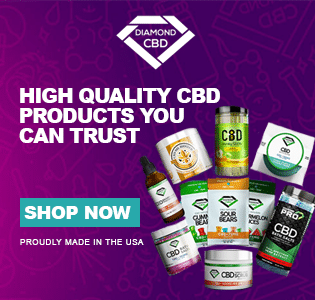Just like navigating a complex maze, understanding the legal landscape surrounding CBD gummies can be equally intricate. As you consider purchasing CBD gummies, it's crucial to recognize that laws regulating their production, sale, and consumption vary significantly from state to state. Understanding the nuances of these laws is not only important for consumers but also for businesses operating in this space. The impact of these varying laws extends beyond mere legality, affecting everything from labeling requirements to age restrictions. This complex web of regulations holds a significant influence on the availability and accessibility of CBD gummies in different parts of the country, making it essential to grasp the intricacies of state-specific laws before making any assumptions about their legality and availability.
Key Takeaways
- Federal legalization of CBD derived from hemp has created a lack of clear regulations, leading to uncertainty and inconsistency in the industry.
- Each state has its own rules and regulations regarding the production, sale, and consumption of CBD products, including varying product testing and quality control regulations.
- Age restrictions for purchasing CBD products vary by state, with most states setting the legal age at 18, while others align it with the legal age for tobacco and alcohol purchases at 21.
- Understanding the distinctions between hemp-derived and marijuana-derived CBD is crucial, as hemp-derived CBD must contain less than 0.3% THC, while marijuana-derived CBD can have higher levels of THC.
Federal Legalization of CBD
Federal legalization of CBD has sparked widespread interest and confusion among consumers and businesses alike. With the passing of the 2018 Farm Bill, CBD derived from hemp is no longer classified as a controlled substance at the federal level. However, the FDA still maintains authority over the regulation of CBD in food, beverages, and dietary supplements. This has led to uncertainty and inconsistency in federal regulations, as the FDA continues to evaluate how to best regulate these products.
In response to the lack of federal guidelines, the CBD industry has attempted to establish its own industry standards to ensure product quality and safety. Some companies have sought third-party certifications to demonstrate their commitment to producing high-quality CBD products. However, without clear federal regulations, the industry standards can vary widely among different manufacturers and may not provide consumers with consistent levels of quality and safety.
As a result, consumers and businesses must navigate a complex landscape of federal regulations and industry standards to ensure they are compliant and informed. It is essential to stay updated on the evolving federal guidelines and seek out reputable sources of CBD products that adhere to rigorous industry standards.
State-Specific CBD Regulations
Navigating the landscape of CBD regulations can be challenging due to the varying state laws. Each state has its own set of rules and regulations regarding the production, sale, and consumption of CBD products. This can make it difficult for consumers to understand their rights and limitations when it comes to purchasing CBD gummies. Two important aspects of state-specific CBD regulations are product testing and quality control, as well as consumer education and awareness.
To illustrate these points, consider the following table:
| State | Product Testing and Quality Control Regulations | Consumer Education and Awareness Programs |
|---|---|---|
| California | Strict regulations on product testing and quality control to ensure safety and consistency of CBD gummies. | Robust consumer education programs to inform the public about the benefits and risks of CBD products. |
| Texas | Limited regulations on product testing and quality control, leading to potential variations in CBD gummy quality. | Limited consumer awareness programs, leaving many Texans uninformed about CBD usage and potential benefits. |
Understanding state-specific CBD regulations is crucial for both consumers and producers to ensure the safety and quality of CBD gummies, as well as to promote consumer awareness and education.
Age Restrictions for CBD Purchases
When it comes to purchasing CBD products, it's important to be aware of the legal age requirements in your state. Each state may have specific age limits for purchasing CBD, so it's crucial to know the regulations in your area. Understanding age restrictions for CBD purchases is essential for businesses to comply with the law and for consumers to make informed decisions.
Legal Age for CBD
What are the legal age restrictions for purchasing CBD products in different states? Age restrictions for buying CBD products vary by state. It's crucial for consumers to be aware of these age requirements to avoid legal issues. In most states, the legal age to purchase CBD products is 18. However, some states have set the age limit at 21, aligning with the legal age for purchasing tobacco and alcohol. It's essential for consumers to stay informed about the specific age restrictions in their state before buying CBD products. Consumer education plays a vital role in ensuring compliance with state laws and regulations. As the CBD industry continues to evolve, staying informed about age restrictions and other relevant regulations is key to making responsible and legal purchases.
State-Specific Age Limits
To ensure compliance with state laws and regulations, it's important to be aware of the state-specific age limits for purchasing CBD products, as they vary across different states. Age restrictions for purchasing CBD products can significantly differ from one state to another. For instance, in some states, individuals must be at least 21 years old to buy CBD products, while in others, the minimum age is 18. It's crucial to familiarize yourself with the age restrictions in your state to avoid any legal issues when purchasing CBD gummies or other related products. These age limits are in place to regulate the sale and consumption of CBD, ensuring that it is being used responsibly and safely. Always verify the purchasing limits and age restrictions in your specific state before making any CBD-related purchases.
Impact on Sales
Understanding the impact of age restrictions on CBD purchases is essential for businesses and consumers alike. The age limitations for purchasing CBD products can significantly impact marketing strategies and consumer behavior. Here's how age restrictions affect sales:
- Marketing Strategies: Age restrictions influence the way businesses can promote and advertise CBD products, as they must comply with regulations to ensure they are not targeting individuals below the legal age for purchasing CBD.
- Consumer Behavior: Age restrictions can shape consumer behavior, as individuals of different age groups may have varying levels of access to CBD products, influencing their purchasing decisions.
- Sales Channels: Age restrictions may impact the sales channels available to businesses, as some distribution channels may have age-related limitations.
- Compliance Costs: Businesses may incur additional costs to ensure compliance with age restrictions, impacting their overall sales strategy and profitability.
Hemp-Derived Vs. Marijuana-Derived CBD
When considering the legal distinctions between hemp-derived and marijuana-derived CBD, it is essential to understand the specific criteria used to differentiate the two. One of the primary differentiators is the THC content regulations. Hemp-derived CBD must contain less than 0.3% THC, while marijuana-derived CBD can have higher levels of THC, which is responsible for its psychoactive effects. Another factor to consider is the cultivation restrictions. Hemp cultivation is federally legal in the United States under certain conditions, while marijuana cultivation remains illegal at the federal level, although it is legal in some states for medicinal or recreational use. To help clarify the differences between hemp-derived and marijuana-derived CBD, let's take a closer look at the key distinctions in the table below:
| Criteria | Hemp-Derived CBD | Marijuana-Derived CBD |
|---|---|---|
| THC Content | Less than 0.3% | Higher levels permissible for potency |
| Cultivation Legality | Federally legal under certain conditions | Illegal at federal level, legal in some states |
| Psychoactive Effects | Non-psychoactive | Psychoactive |
Sales and Distribution Laws
When it comes to sales and distribution laws for CBD gummies, it's crucial to be aware of the state-specific regulations and ensure compliance with any restrictions. Different states have varying rules regarding the sale and distribution of CBD products, so staying informed about these laws is essential to avoid legal issues. Understanding the specific requirements for each state will help you navigate the complexities of selling and distributing CBD gummies.
State-Specific Regulations
State-specific regulations regarding the sales and distribution of CBD gummies vary widely across the United States, creating a complex landscape for businesses and consumers alike. When it comes to navigating the legal framework for CBD gummies, it's essential to stay informed about the specific regulations in your state. Here are some key factors to consider:
- Legal Status: Some states have fully legalized the sale and distribution of CBD gummies, while others have more stringent regulations or outright bans.
- Licensing Requirements: States may have different requirements for businesses selling CBD gummies, including obtaining specific licenses or permits.
- Age Restrictions: There are varying age restrictions for purchasing CBD gummies in different states, so it's crucial to be aware of the legal age for purchasing these products.
- Retail Restrictions: Certain states have limitations on where CBD gummies can be sold, such as only in licensed dispensaries or through specific channels.
Compliance With Restrictions
To ensure compliance with varying state laws on the sales and distribution of CBD gummies, it is crucial for businesses to thoroughly understand and adhere to the specific regulations in each state where they operate. State specific licensing requirements and compliance challenges are paramount considerations for businesses in the CBD gummies industry. The table below outlines some of the common compliance challenges and state specific licensing requirements that businesses may encounter when selling and distributing CBD gummies across different states.
| Compliance Challenges | State Specific Licensing |
|---|---|
| THC content limitations | Obtaining proper permits |
| Labeling requirements | Compliance with testing regulations |
| Restrictions on marketing | Meeting packaging standards |
| Age restrictions | Retail location regulations |
Labeling and Packaging Requirements
Before selling CBD gummies, ensure that the labeling and packaging meet the specific requirements outlined by your state laws. Failure to comply with packaging regulations and product labeling can lead to fines or even the suspension of your business operations. Here are the key aspects to consider when addressing labeling and packaging requirements for CBD gummies:
- CBD Content: Clearly state the amount of CBD in each gummy. Some states have strict rules about accurately representing the CBD content.
- THC Content: Disclose the THC content per serving in compliance with state regulations. This is crucial as THC levels are heavily regulated.
- Allergen Information: Include any allergens present in the gummies to ensure consumers are well-informed about potential health risks.
- Health Claims: Avoid making unsubstantiated health claims on the packaging. Many states prohibit unverified health claims on CBD products.
Licensing and Registration for CBD Businesses
When establishing your CBD business, ensuring compliance with state laws regarding licensing and registration is essential for avoiding potential fines and business disruptions. Each state has its own licensing requirements and business registration processes for CBD companies. It's crucial to thoroughly understand the specific regulations in the states where you plan to operate. Failure to adhere to these requirements can result in severe consequences for your business.
Here's a brief overview of the licensing and registration requirements for CBD businesses in five different states:
| State | Licensing Requirements | Business Registration |
|---|---|---|
| California | Obtain a state cannabis license and register with the | Register your business with the California Secretary of State |
| local government. | ||
| New York | Apply for a Cannabidiol (CBD) Processor License | Register your business with the New York Department of State |
| through the New York State Department of Health. | ||
| Texas | Secure a CBD Processor License from the Texas Department | Register your business with the Texas Secretary of State |
| of State Health Services. | ||
| Florida | Obtain a Hemp Extract Registration from the Florida | Register your business with the Florida Department of State |
| Department of Agriculture and Consumer Services. | ||
| Colorado | Apply for a Hemp Food Product Manufacturer License | Register your business with the Colorado Secretary of State |
| through the Colorado Department of Public Health & | ||
| Environment. |
Understanding and fulfilling these requirements is crucial to running a compliant and successful CBD business.
Frequently Asked Questions
Are There Any Specific Laws or Regulations in Place for CBD Gummies in States That Have Legalized Recreational Marijuana?
In states with legalized recreational marijuana, specific laws and regulations apply to CBD gummies. Licensing requirements and THC content restrictions vary, so it's essential to research and understand the rules in your state before purchasing or selling CBD gummies.
How Do CBD Gummy Regulations Differ in States That Have Only Legalized Medical Marijuana?
Regulatory variations for CBD gummies in states that have only legalized medical marijuana can impact the availability and potency of products. Consumer preferences may be limited due to stricter regulations on THC content and product distribution.
Are There Any Restrictions on the Flavors or Ingredients That Can Be Used in CBD Gummies in Certain States?
In certain states, flavor restrictions and ingredient regulations may impact the production of CBD gummies. It's essential to be aware of the specific laws in your state to ensure compliance with these guidelines.
Can CBD Gummies Be Sold in Convenience Stores and Gas Stations in All States, or Are There Specific Regulations on Where They Can Be Sold?
In some states, CBD gummies can be sold in convenience stores and gas stations, while others have specific regulations on selling locations. Additionally, there are age restrictions in place for purchasing CBD products, so it's important to be aware of local laws.
Are There Any Restrictions on the Marketing and Advertising of CBD Gummies in Different States?
In different states, marketing regulations for CBD gummies vary, and age restrictions may apply. It's important to research the specific laws in your state to ensure compliance with advertising and selling CBD products.





